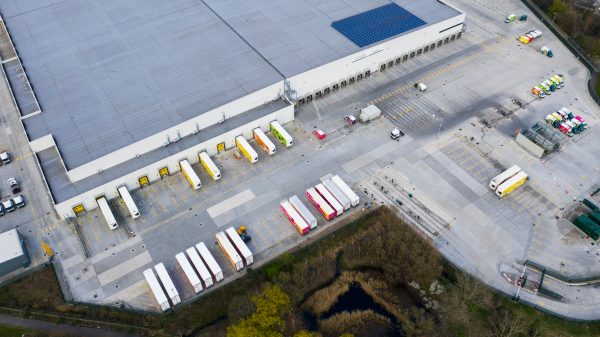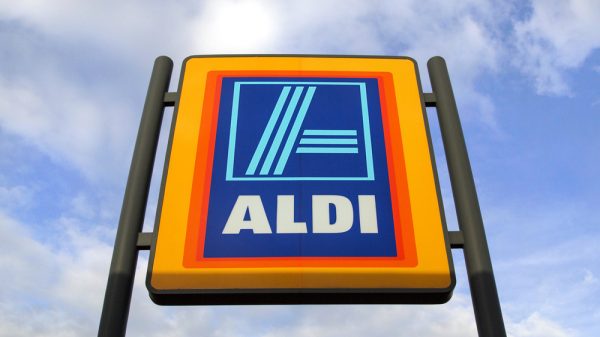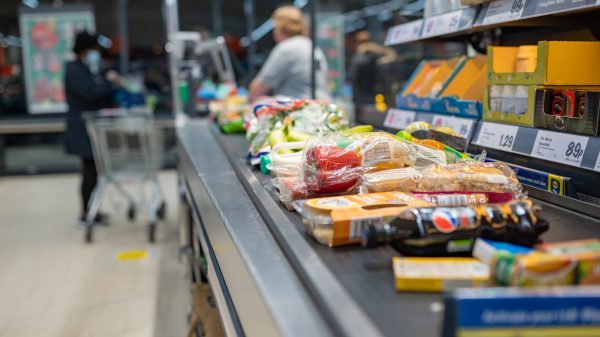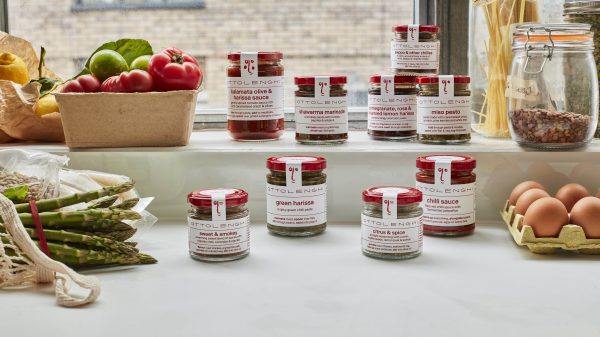It’s late November and supermarkets are gearing up for Christmas with a festive recruitment drive. Collectively, Britain’s three biggest grocers – Tesco, Sainsbury’s and Asda – are hiring over 12,000 depot workers and delivery drivers.
However, this staple of the retail calendar could soon be a thing of the past. If forecasts are to be believed, e-commerce is a ticking time bomb.
The basic issue is that picking, packing and dropping off groceries costs far more than customers wandering around a shop with a basket. Supermarkets have been riding the crest of an e-commerce wave, but now they need to be careful of the rocks.
Many believe the only salvation is automation – but this throws up problems of its own.
According to insurance company Euler Hermes, grocers stand to lose almost a quarter of a billion for every percentage point that e-commerce increases its share of the market.
This isn’t just a case of shaving margins too close for comfort. It would mean businesses being gutted.
Logistics workers need to be replaced with machines, Euler Hermes concludes. If not? In the opinion of retail expert Aurélien Duthoit, this isn’t a choice at all. “Do or die,” is his stark assessment.
READ MORE: Ocado to test self-driving vans on London roads
Duthoit believes that the pandemic meant grocers had to rapidly expand their online capabilities without considering their balance sheet.
“The problem is that this is not profitable,” he says. “They knew that consumers were a bit scared of going to the supermarket.
“They had to do it, they just had to have a service. Otherwise they would have lost market share.”
You only need to look at a major supermarket’s financials for last year: sales were high but profits were down.
“It was not just about higher sanitisation costs, or reorganising stores,” Duthoit argues. “It was also about the higher cost of making sales.”
The economic need for automation is pressing, then. And companies like Ocado, which uses robots to pick and pack groceries, seem to hold the solution. But is the technology ready?
READ MORE: Ocado moves north of the border with £80m Scottish hub
When Paul Verhoeven’s Robocop came out in 1987, it quickly cemented itself as a cult classic with its over-the-top gun battles and explosions. The modern day “roboshop” is less Hollywood, but it’s still played host to a few disasters.
In February 2019, a faulty robot charger set Ocado’s flagship Andover warehouse alight. The fire raged for four days and sent ten per cent of its market share up in smoke.
“We are not concerned that there is a fundamental issue with the design,” chief executive Tim Steiner told Bloomberg at the time.
“Will we learn lessons from it? Of course we will. We always learn lessons from our mistakes.
“Can we improve things and make sure things are safer in the future? Yes. But there is no issue there.”
Two years later, Ocado’s Erith hub burst into flames when three robots collided like Black Friday shoppers diving for a cut-price TV.
Steiner was once again on hand to give assurance, pointing the finger at the “old robot” design. “With the new robots, nothing would have happened,” he said.

Most British supermarkets seem hesitant about building bridges with Ocado. Duthoit doesn’t think the recalcitrant robots will put supermarkets off, though.
“I think the economic case is too strong,” he says. “We can only hope that [the fires] were only incidents and that it’s not something that is inherent to e-commerce. I don’t think so, by the way.”
Scaling up is another problem. Marks & Spencer began a joint venture with Ocado in September 2020, but chairman Archie Norman has criticised its coverage across the UK.
“Ocado can’t serve a lot of Marks & Spencer customers – they are still building more capacity,” he admitted in July. Technological demands mean this is a slow process. The Andover hub, gutted by the fire of two years ago, only reopened in August.
And if you’ve tried to order Ocado food in Scotland, then you’ll be waiting a long time. The FTSE 100 company only applied for planning permission for a hub north of the border in September.
Max Hammond, a senior director at tech company Gartner, also thinks that its grocery venture is a turn-off. At the end of October, it held a small-but-significant 1.7 per cent share of the market.
READ MORE: Ocado pledges to stop robots burning down warehouses
“Ocado is still a competitor for a large swathe of grocery retailers at the moment,” he says.
“The perception from retailers is they’re a competitor, so why should we be strengthening our competitor?”
Instead, Hammond predicts a tectonic shift towards “store-based micro-fulfilment centres”, or MFCs, where robots pack shopping in the back room of a supermarket. (Imagine a vending machine scaled over several thousand feet).
Hammond says that change is already afoot, but “can’t go into names”.
He continues: “Even though we haven’t seen many – any – implementations within the UK in terms of actually having this in situ, the interest is there.
“The largest grocery retailers in the UK have started to think [of] this as a major strategy for their next year. This is going to be mainstream, certainly within the next ten years.”
MFCs have quickly caught on across the Atlantic. Walmart is reportedly planning 100 mini-hubs after its first trial in Salem, New Hampshire in 2019.
READ MORE: Ocado shoppers livid as Christmas slots filled in ‘seconds’
Each one costs around $3 million – “which sounds like a lot”, Hammond admits. “But when you start to think about profitability within that fulfilment, the payback is generally within about 12 months.”
This isn’t to say Ocado will go extinct in this ecosystem. If the US is a weathervane, just look at how Kroger has commissioned monstrous warehouses of almost 400,000 sq. ft, along with smaller centres in California and South Florida.
I ask Hammond if automated e-commerce is inevitable. He pauses for a couple of seconds like it’s a trick question.
“Yes,” he says finally. “It’s a short answer.”
Whether or not Ocado ultimately becomes the dominant logistics force it hopes to be, the economic gravity is heading in its direction. If retailers resisted automation, the cost would be existential.
In the flat, metallic words of Robocop: “Come quietly or there will be… trouble.”
Click here to sign up to Grocery Gazette’s free daily email newsletter










